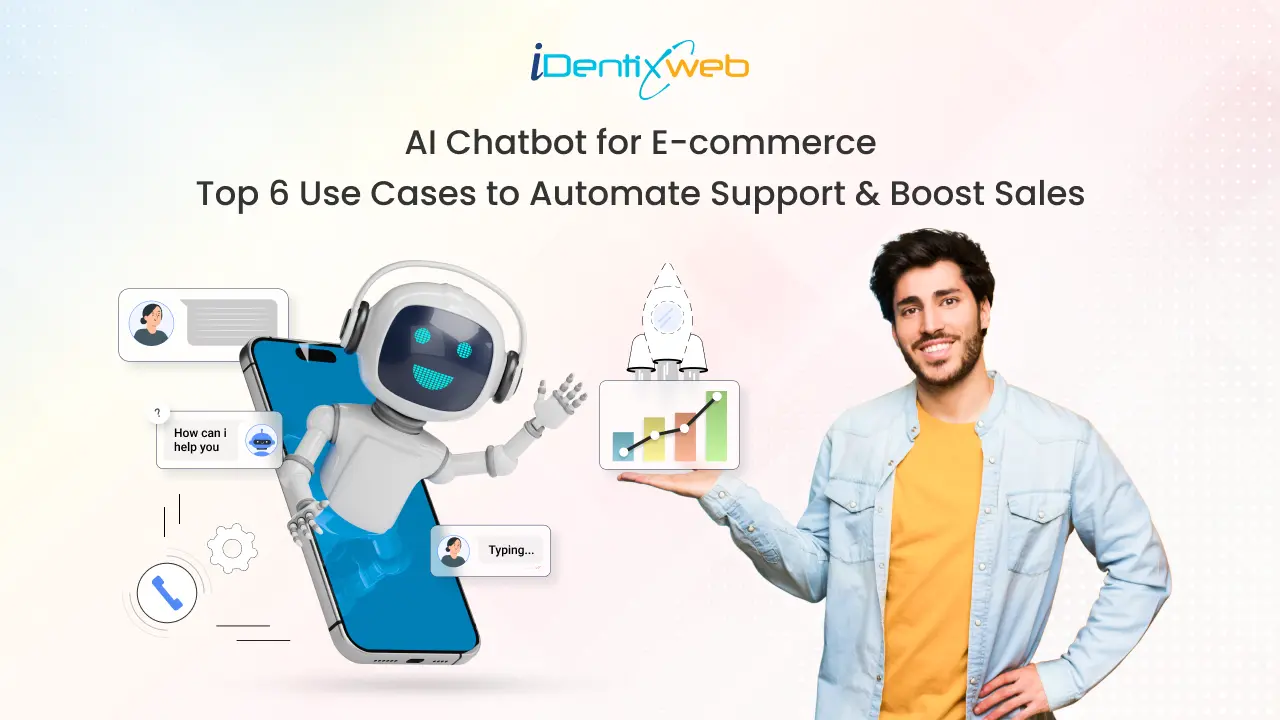
E-commerce chatbots are not a new phenomenon. It’s been around for years. Chatbots were added to stores with pre-defined questions to answer the most common queries. Now, it has evolved into an AI chatbot for e-commerce, and it is rapidly growing.
Sales (41%) and support (37%) are the two most common use cases for AI chatbots. Both are important from an e-commerce point of view.
In this article, we will explain all about AI chatbots, their types, use cases and the features of the best AI chatbot for e-commerce.
Let’s get a brief overview of e-commerce chatbots.
What is an E-commerce Chatbot?
An e-commerce chatbot is an online bot that is integrated into an e-commerce store. This bot communicates with the customer to solve any queries. This can be anything related to products, order status, payment issues, and return & refund policies.
There are three types of e-commerce chatbots, each with benefits and limitations. Let’s go through all of them.
Types of E-commerce Chatbots
Rule-based Chatbots
Before AI took over, chatbots on e-commerce websites were rule-based. Programmers would add pre-defined questions to the bot, and based on these rules, the bot would respond.
This was added to answer frequently asked questions by the customers. These chatbots are very easy to quality control and develop. But apart from what the programmers add, they cannot answer complex questions or talk naturally with the customers.
AI Chatbots for E-commerce
The need for more advanced chatbots developed when store owners needed more personalization. AI chatbots for e-commerce are equipped with natural language processing and machine learning capabilities.
Machine learning happens when the decision-making of an AI chatbot for e-commerce improves over time by feeding it historical data. NLP, on the other hand, means the ability of AI assistants to comprehend different languages and respond naturally like a human.
AI chatbots can respond naturally to the customer and will learn the customer's behaviour based on the conversations. These chatbots are more difficult to develop and are harder to quality control than traditional chatbots. However, the benefits of AI chatbots far outweigh those of traditional bots.
Hybrid Chatbots
These chatbots combine the benefits of both AI chatbots and rule-based chatbots. Hybrid chatbots give e-commerce merchants the flexibility to control quality and give answers to complex customer questions.
AI chatbots can be used by e-commerce companies in a variety of ways. Let’s look at some common use cases below.
6 Best E-commerce Chatbot Examples with Use Cases
Personalized Responses - Fin AI by Intercom
When you go to an offline store for shopping, you get personalized assistance to select a product. AI chatbots can be used in a similar way for online shopping.
Customers lose a lot of time hunting for information regarding what they want to purchase online. AI shopping assistants offer personalized responses to questions based on their purchase history and browsing data. They help customers get the product they want faster, helping you increase store sales.
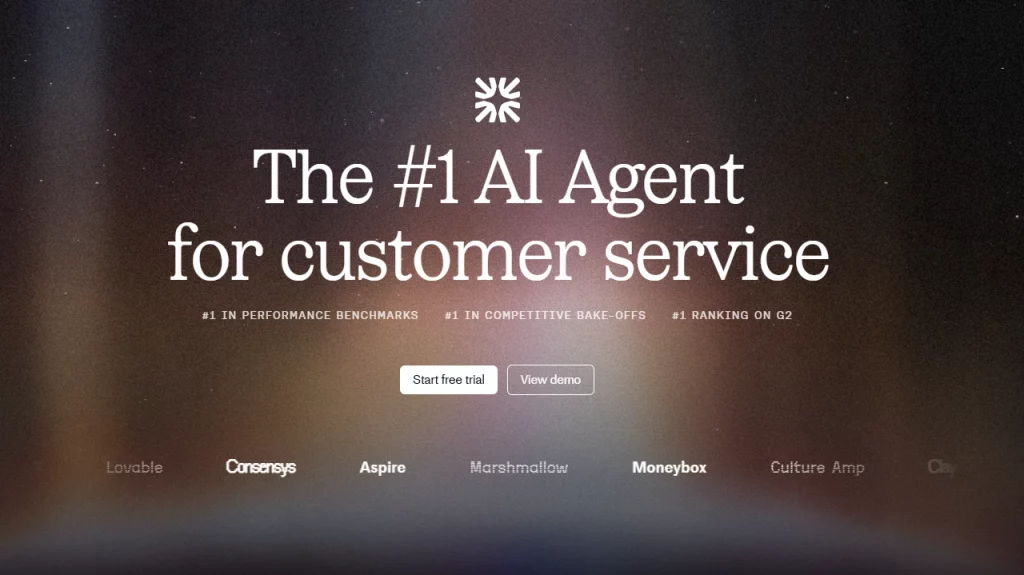
Fin by Intercom is a fine example of an AI agent that can be integrated into your store. It helps in providing unique responses based on customers’ buying preferences.
Order & Return Management - Zendesk AI Agent
Order fulfillment is a huge part of any e-commerce business. Every customer wants a seamless order-tracking process. They want to stay updated in real-time regarding the shipping status and the returns & refunds.
AI chatbots help customers with a user-friendly experience when they request updates on shipping and returns. Customers can chat with AI bots to get details regarding delivery date, time, current location, and more.

Zendesk AI agent is a great example of an AI bot that handles orders and returns management. It coordinates data points faster, helping e-commerce merchants to streamline their order tracking and returns.
Discounts and Promotions - Chatfuel
Customers need to know when you are offering a discount or running a promotional campaign. But not all customers look for specific discounts or offers. This is where AI-powered chatbots come in.
AI agents collect a massive amount of data from your business and customers. These regular interactions help the bot to show offers to relevant customers based on their shopping history.
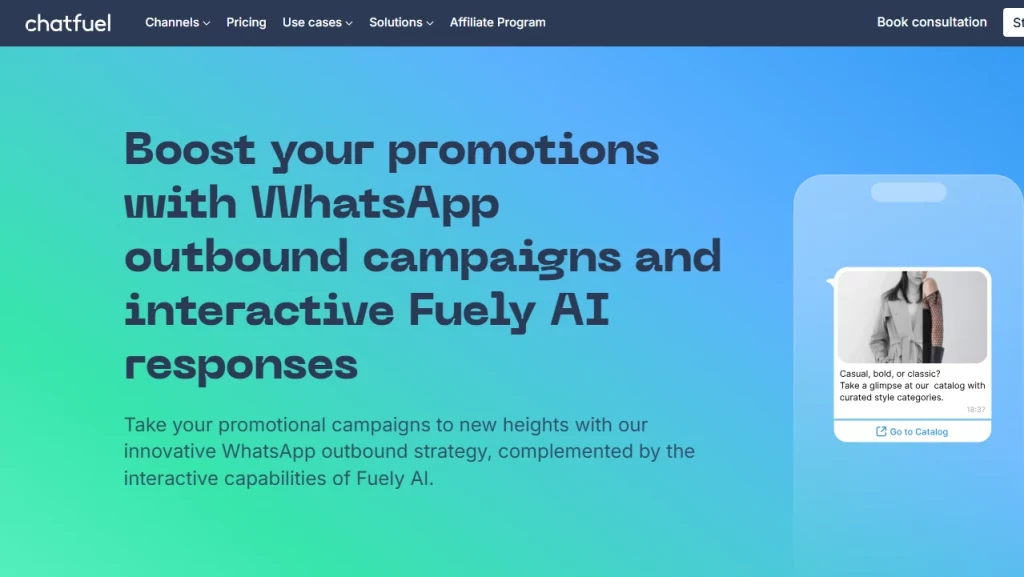
AI-powered solutions like Chatfuel not only help with promotions on your website but also through social media. This chatbot can be integrated with multiple platforms like WhatsApp and Facebook Messenger to offer discounts and purchasing power directly through these apps.
Solving Customer Queries - Tidio
AI Chatbots can handle thousands of customer queries in a day, something human agents cannot. With multi-channel and omnichannel marketing on the rise, AI chatbots can solve queries in any language and on multiple platforms.

Tidio is an AI customer service platform that helps resolve support requests. It provides support in 12 languages and can be integrated with email, website, and social media platforms. Plus, Tidio offers a feature that instantly transfers any issue to a human agent.
Recovering Abandoned Cart - Manychat
Customers not completing the checkout is a huge concern for online merchants. The global cart abandonment rate is 70% as of 2025.
With an AI chatbot for e-commerce, merchants can automate reminders via email or push notifications to complete the checkout. This decreases the cart abandonment rate significantly.

An AI chatbot for e-commerce, like Manychat, helps automate follow-ups to remind customers of their abandoned carts. What’s more great is that you can also integrate it with discounts as an incentive to encourage customers to complete their checkout faster.
Collect Customer Information & Reviews - Jivochat
If you run a lead generation campaign, the better the customer data, the greater the results. AI chatbots are fantastic for collecting customer information.
For example, whenever a customer lands on your website, you can set up a chatbot to initiate a conversation. You can collect thousands of leads and run a lead generation campaign using this data as a lookalike audience.

Jivochat is a great AI chatbot for e-commerce that helps with collecting information. It comes with lead-generation templates that you can set up in the conversation. It can also be easily integrated into the CRM tool to automatically generate and nurture leads.
Before implementing an AI chatbot for e-commerce, keep the below best practices in mind to get better results.
Best Practices to Use AI Chatbots for Your Store
Note Down the Channels You Use
Third-party integrations are an important feature to have for an AI chatbot. Identify the channels you use for your business, such as social media, emails, SMS, and websites. Make sure the AI chatbot can be easily integrated into these platforms.
Ensure Transfer of Task
Even though solving customer queries is one of the best benefits of AI chatbots, not all customers are alike. Make sure to set up a workflow where, if the bot is stuck with a conversation, it can instantly transfer the conversation data to a human agent.
Integrate it With Your CRM Software
CRM software is the backbone of your marketing and sales efforts. Ensure that the AI chatbot can be integrated into your CRM tool. It will be a huge bonus for your sales and marketing automation.
Keep Monitoring & Optimizing
Don’t just add an AI chatbot and forget about it. Artificial intelligence is a continuous learning process. Keep analzing the data and make changes to improve your AI chatbot implementation.
AI Chatbot for E-commerce is Not the Future. It’s the Present
There’s a reason AI is trending in the e-commerce industry. Sales and customer service are two pillars of e-commerce, and AI chatbots can handle them perfectly.
All your competitors, one way or another, are using AI in their workflow. Do not get left behind. Invest smartly in AI for your business. Sales, marketing, content creation, and customer service are just a few of the areas where AI can be implemented. Choose the one where you want to focus and watch your brand grow.
FAQ
1. Can I use a chatbot for an e-commerce website?
Yes. Chatbots can be integrated into your e-commerce website.
2. How do AI chatbots work?
An AI chatbot solution for e-commerce works by integrating these bots into your e-commerce website. These chatbots are software that helps you with different tasks, such as solving customer queries.
3. What is the best AI chatbot for e-commerce?
The best AI chatbot for e-commerce depends on your business and goals. Tidio, Fin AI, and Zendesk are popular AI assistants for e-commerce.
4. What are the benefits of AI chatbots for e-commerce?
Personalized product recommendations, automating manual tasks like product descriptions, listings, & more, and reducing cart abandonment rate are some of the important benefits of AI chatbots in e-commerce.
5. Can I integrate AI chatbots on Instagram?
Yes. An AI chatbot can be integrated with Instagram for sales and marketing.


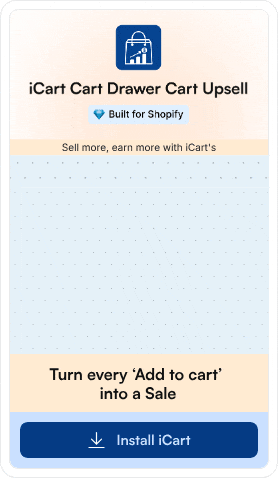
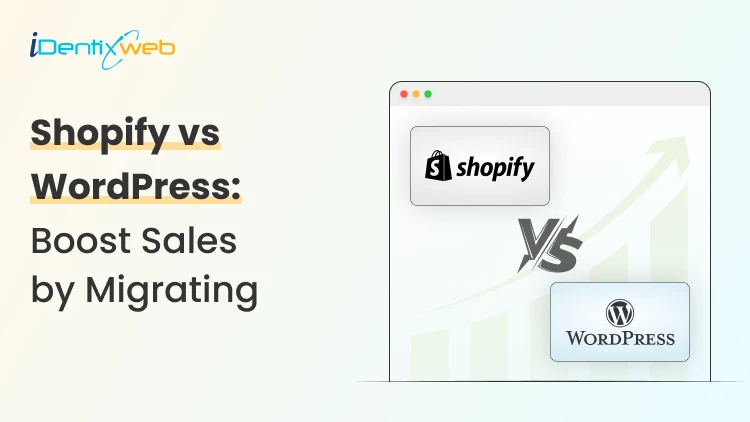
![How to Change Shopify Cart Icon in Just 4 Steps [For All Themes] How to Change Shopify Cart Icon in Just 4 Steps [For All Themes]](https://www.identixweb.com/wp-content/uploads/2026/02/19-02-Thu-Blog-How-to-Change-Shopify-Cart-Icon-in-Just-10-Minutes_.webp)
![Shopify Ecommerce Automation: Tasks You Can Automate [Real Use Cases] Shopify Ecommerce Automation: Tasks You Can Automate [Real Use Cases]](https://www.identixweb.com/wp-content/uploads/2026/02/19-02-Thu-Blog-Which-Shopify-Tasks-Can-You-Automate_-Top-Use-Cases-Explained.webp)

About the author
Vineet Nair
Vineet is an experienced content strategist with expertise in the ecommerce domain and a keen interest in Shopify. He aims to help Shopify merchants thrive in this competitive environment with technical solutions and thoughtfully structured content.